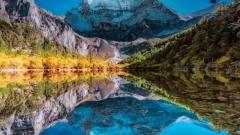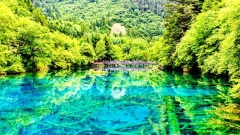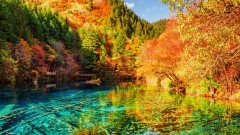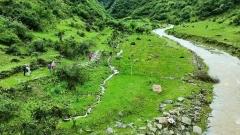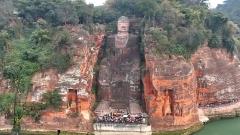Introduction to Jiuzhaigou
Located in the Aba Tibetan and Qiang Autonomous Prefecture in Sichuan Province, China, Jiuzhaigou derives its name from the nine Tibetan villages scattered throughout the valley. It is a national 5A-rated tourist attraction, a UNESCO World Natural Heritage Site, and a World Biosphere Reserve. Renowned for its pristine forests, sapphire lakes, cascading waterfalls, and colorful travertine formations, Jiuzhaigou is often referred to as a “fairyland on Earth” or a “storybook paradise.”
Covering an area of approximately 720 square kilometers, with elevations ranging from 2,000 to 3,100 meters, Jiuzhaigou enjoys a cool and humid climate year-round. The valley is best known for its six unique natural features: emerald lakes, layered waterfalls, colorful forests, snow-capped peaks, Tibetan culture, and blue ice—with its crystal-clear, multi-hued lakes being the standout attraction.
Jiuzhaigou offers breathtaking scenery year-round: blossoms in spring, waterfalls in summer, colorful foliage in autumn, and snow-covered vistas in winter. It is one of China’s most iconic eco-tourism destinations, ideal for photography lovers, couples, families, and those seeking relaxation and healing through nature.
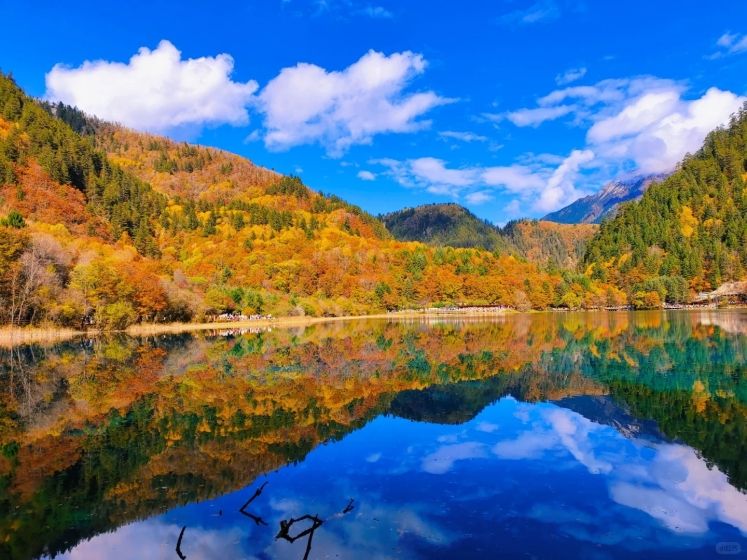
Jiuzhaigou Valley
Six Must-Visit Scenic Spots in Jiuzhaigou
1.Nuorilang Waterfall
Highlight: The most majestic and expansive waterfall in Jiuzhaigou—and the widest travertine waterfall in China, spanning approximately 270 meters. The roaring cascade plunges from cliffs like a silver ribbon, and under sunlight, the spray creates dazzling rainbows. Strolling along the wooden walkways offers various perspectives of this thunderous and awe-inspiring natural wonder.
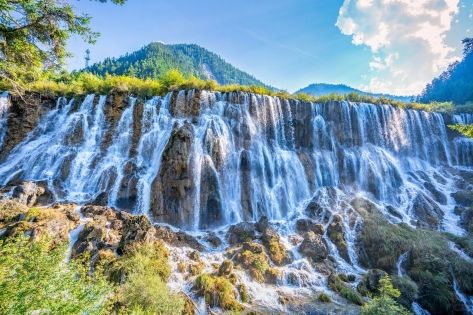
Nuorilang Waterfall
2.Five-Flower Lake (Wuhua Hai)
Highlight: One of the most iconic and colorful lakes in Jiuzhaigou, often referred to as “the soul of Jiuzhaigou” and its most stunning attraction. The lake bed, composed of travertine formations, aquatic plants, algae, and sunken trees, reflects vibrant hues of blue, green, yellow, and more. From the Tiger Mouth Viewpoint, the lake resembles a peacock in full display, making it a must-visit for photographers.
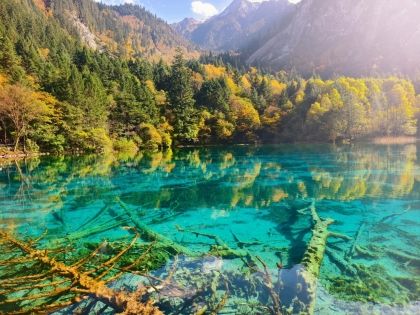
Five-Flower Lake
3.Long Lake (Chang Hai)
Highlight: The largest and highest lake in Jiuzhaigou, sitting at an elevation of 3,101 meters. Known locally as the “bottomless gourd that never overflows nor dries,” it remains a tranquil blue throughout the year, mirroring the surrounding snow-capped peaks and forests. A serene walk along its shores reveals spectacular alpine views and a sense of peaceful solitude.
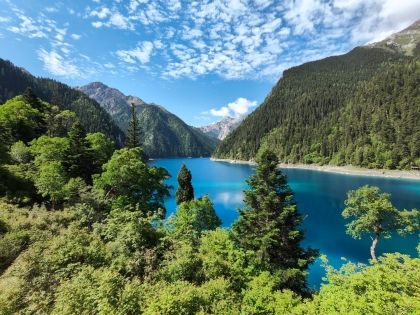
Long Lake
4.Shuzheng Lakes (Shuzheng Qun Hai)
Highlight: One of Jiuzhaigou’s signature attractions, this chain of 19 terraced lakes forms a natural jade necklace in the valley. The emerald-green water flows through lush forest, creating a dreamlike setting where “trees grow in the water, streams run through the woods, and visitors stroll through a living painting.”
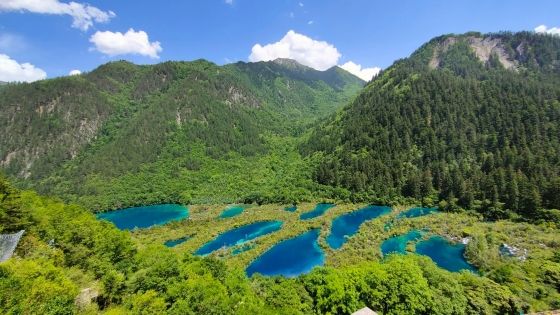
Shuzheng Lakes
5.Pearl Shoal
Highlight: A unique travertine shoal featured in the Chinese TV classic Journey to the West, Pearl Shoal is named for the water that glistens and splashes like rolling pearls. Walking along the wooden paths offers a close-up view of the vibrant stream, as it tumbles playfully across the white shoal, creating a joyful and refreshing experience.
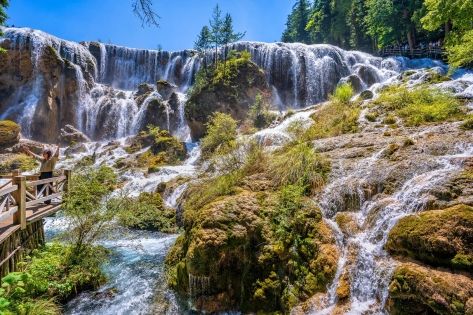
Pearl Shoal
6.Mirror Lake
Highlight: The third-largest lake in Jiuzhaigou, Mirror Lake earns its name from its calm, glass-like surface, which reflects the sky, mountains, and trees in perfect symmetry—especially stunning in the early morning. In autumn, red leaves float on the lake and koi swim below, turning the entire scene into a living ink painting.
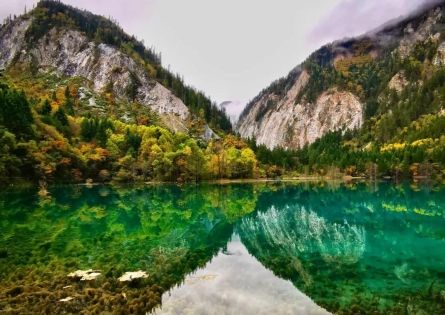
Mirror Lake
Transportation Guide to Jiuzhaigou
1.For International Travelers
The most common route for international tourists to Jiuzhaigou is to first fly to Chengdu, the capital of Sichuan Province, via Chengdu Shuangliu International Airport (CTU) or Chengdu Tianfu International Airport (TFU). As a major aviation hub in southwest China, Chengdu offers convenient international connections and full traveler services.
2.Getting from Chengdu to Jiuzhaigou
The distance from Chengdu to Jiuzhaigou is approximately 430 kilometers, with travel times ranging from 6 to 8 hours, depending on the transportation mode. The two most common and efficient ways to reach Jiuzhaigou from Chengdu are:
- By Plane:
Jiuzhai Huanglong Airport (JZH), at an altitude of about 3,448 meters, is the main airport serving the Jiuzhaigou region.
The airport is located about 86 kilometers (approx. 1.5 hours by car) from Jiuzhaigou Scenic Area.
Most flights depart from Chengdu Tianfu International Airport and take around 1 hour.
- By High-Speed Train:
Huanglong-Jiuzhai Railway Station, at an altitude of about 2,500 meters, is the main high-speed rail station near Jiuzhaigou.
It is located approximately 90 kilometers from the scenic area, with a travel time of around 1.5 hours by car.
Trains depart from Chengdu East Railway Station, with total travel times of 1.5 to 3 hours, depending on the service.







